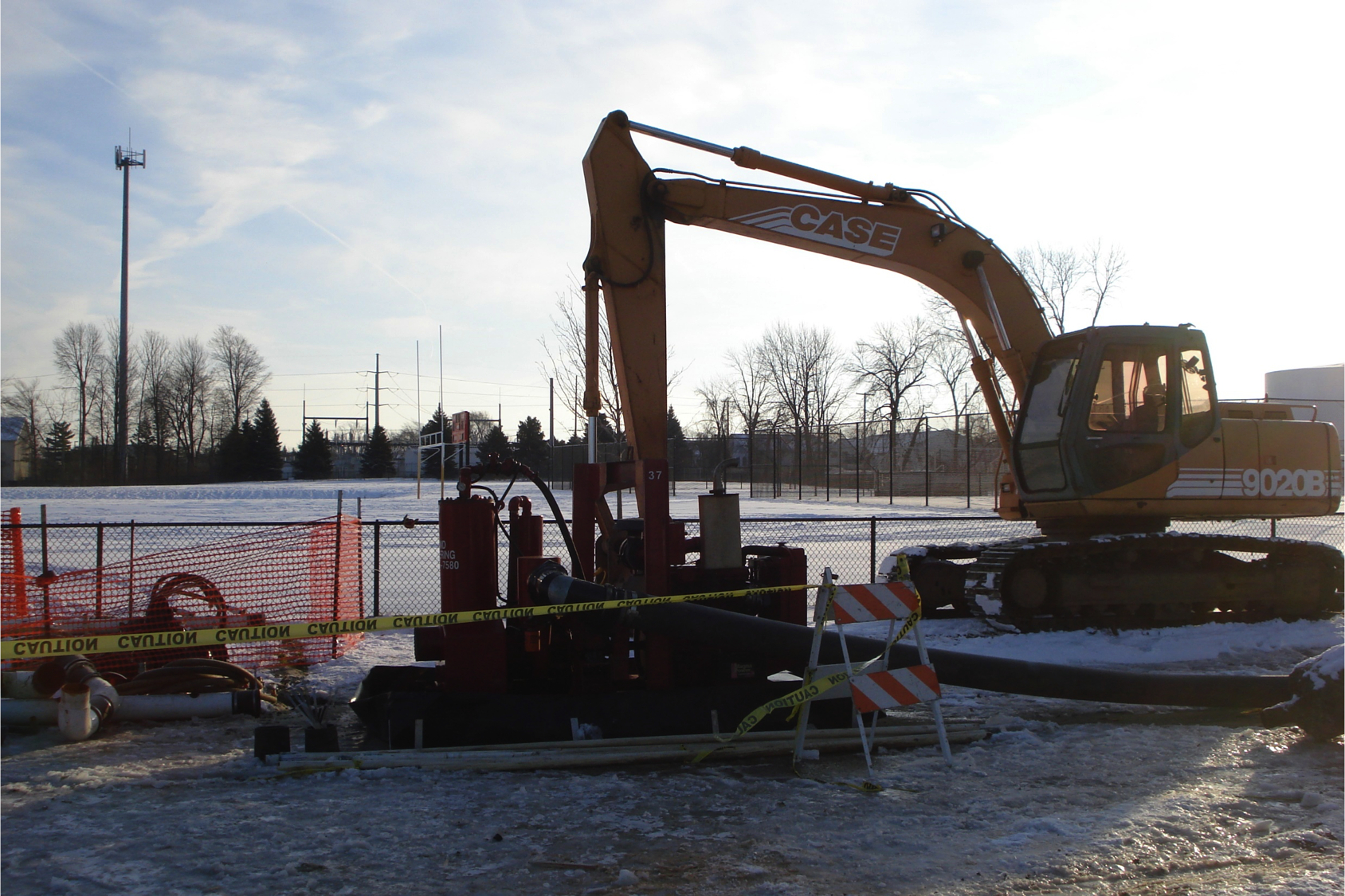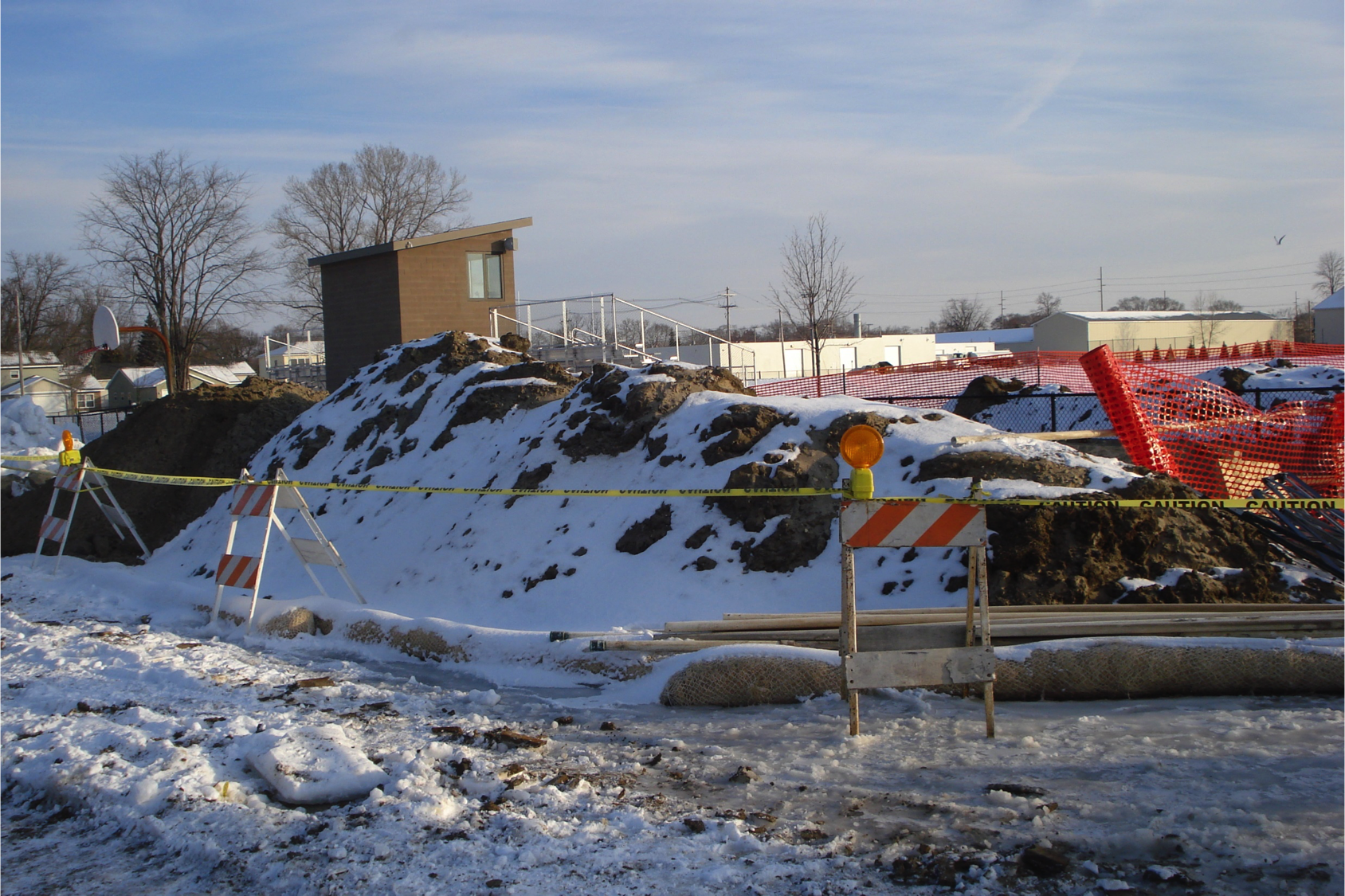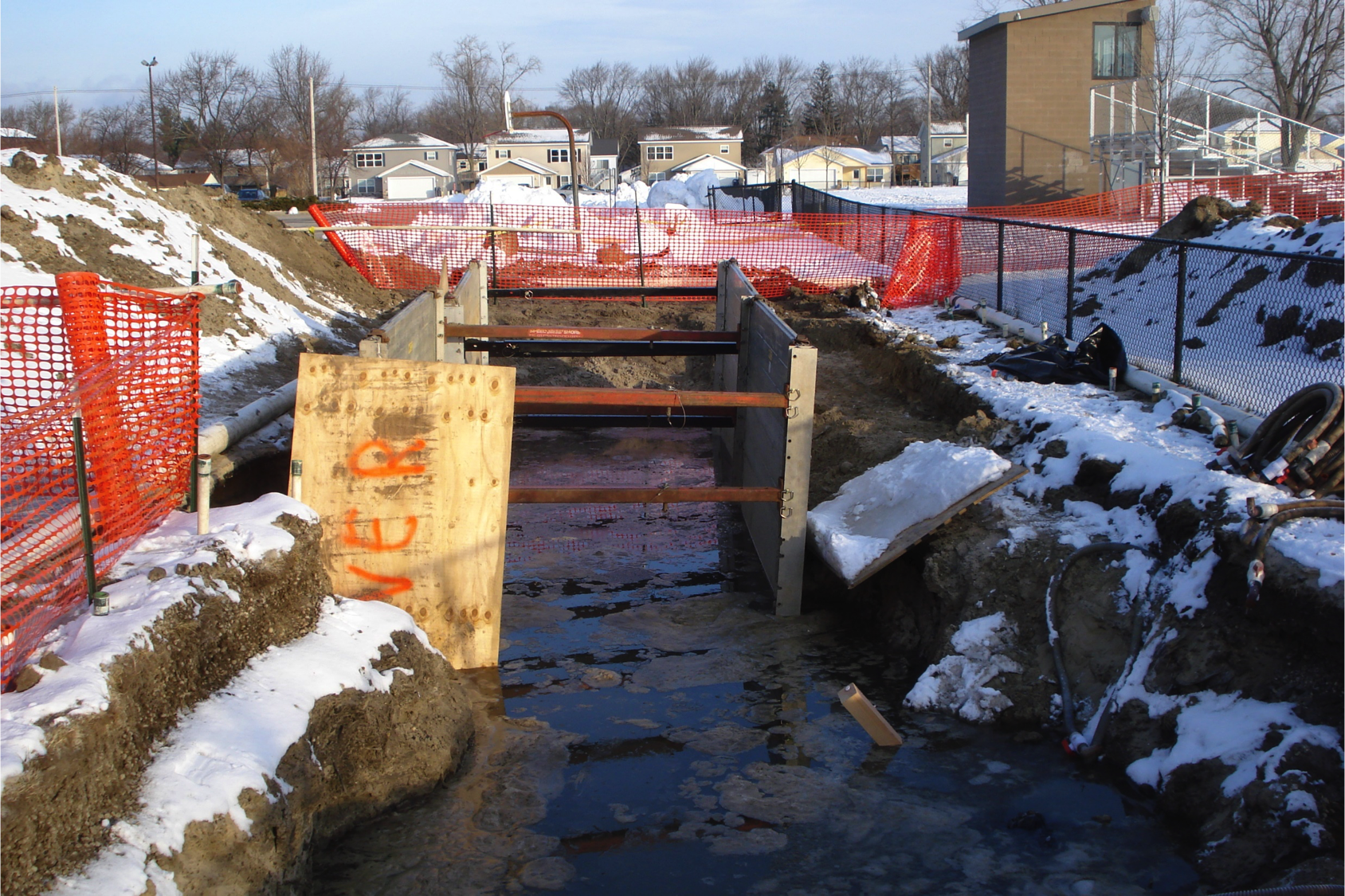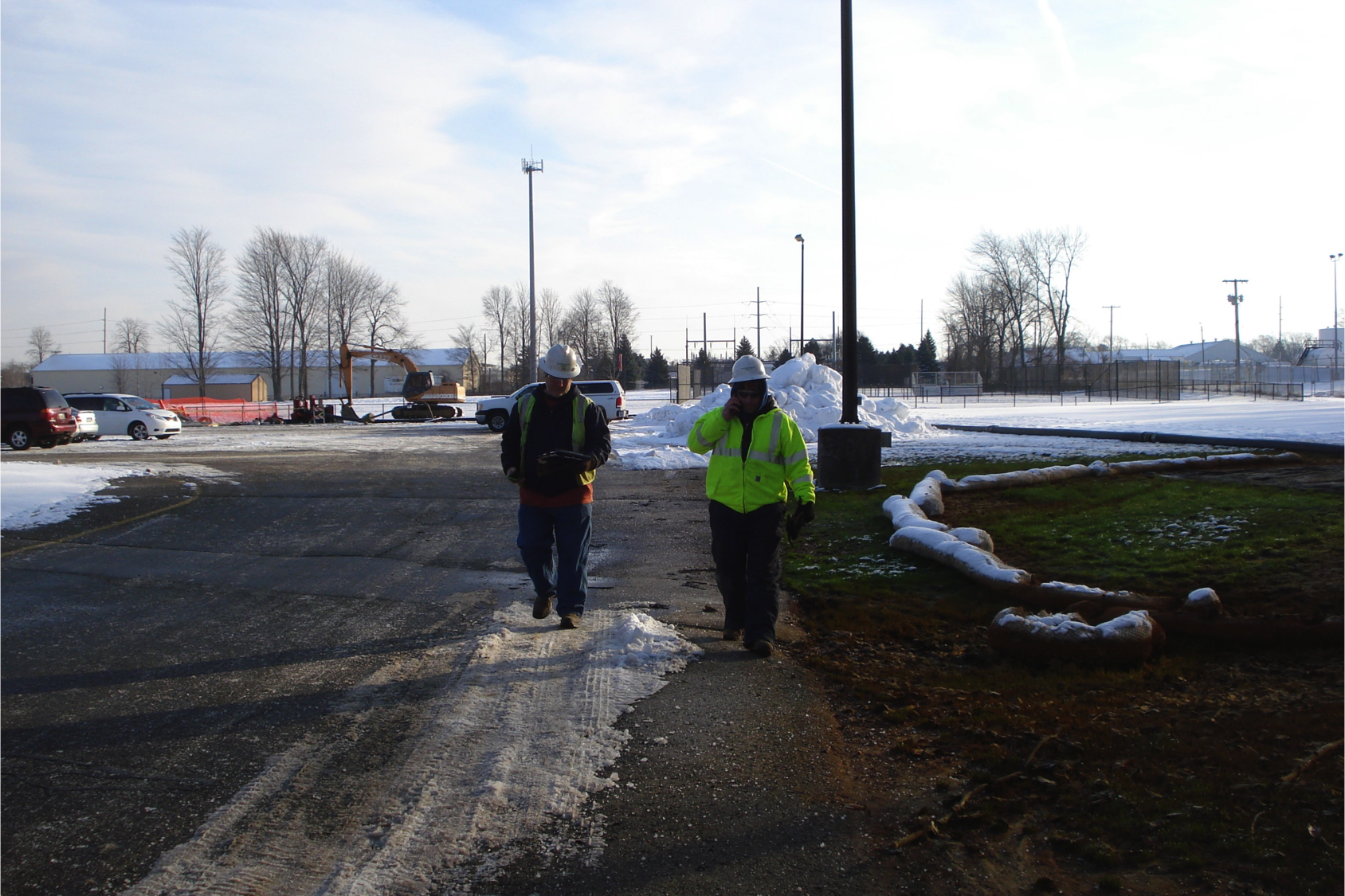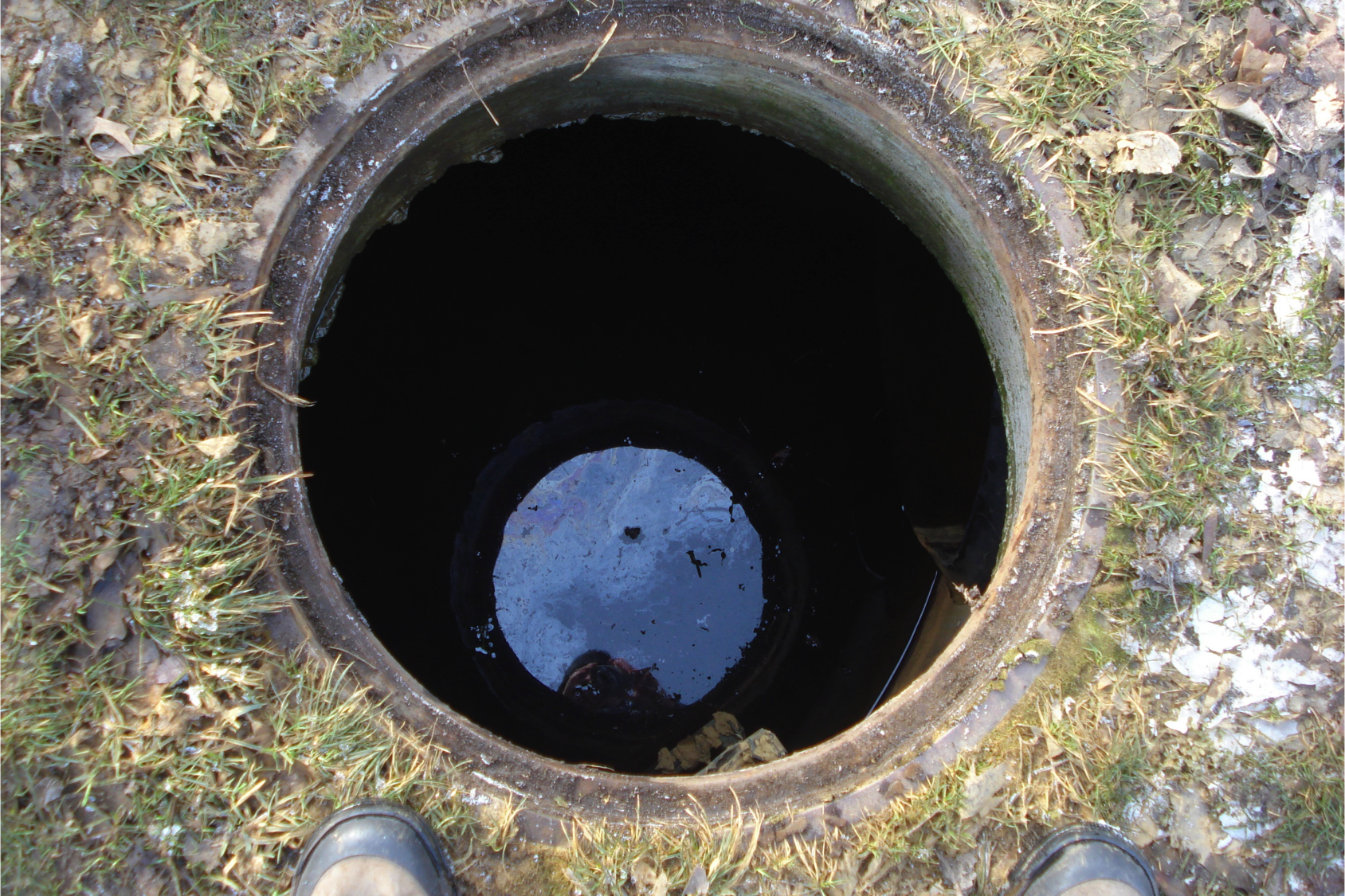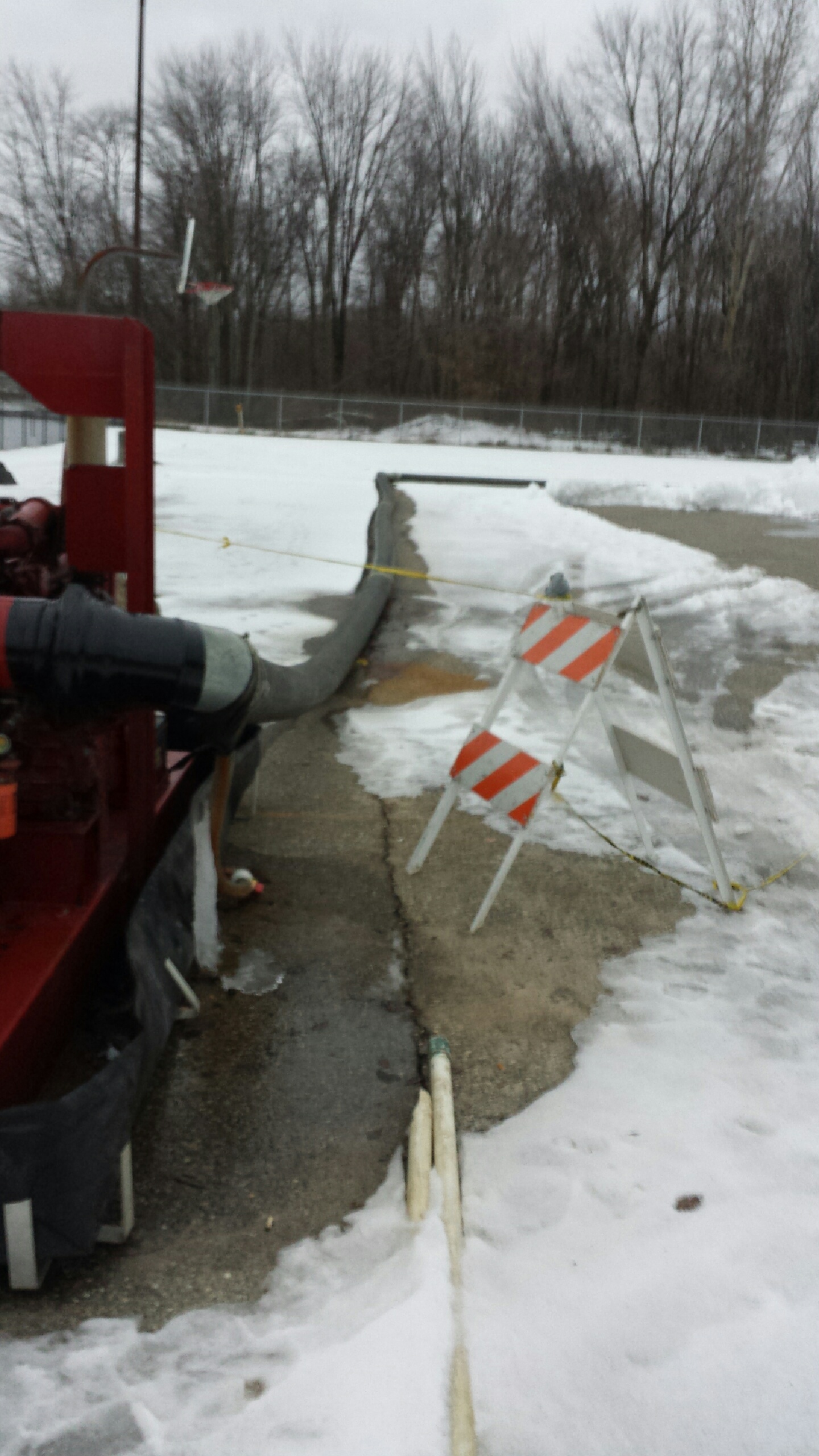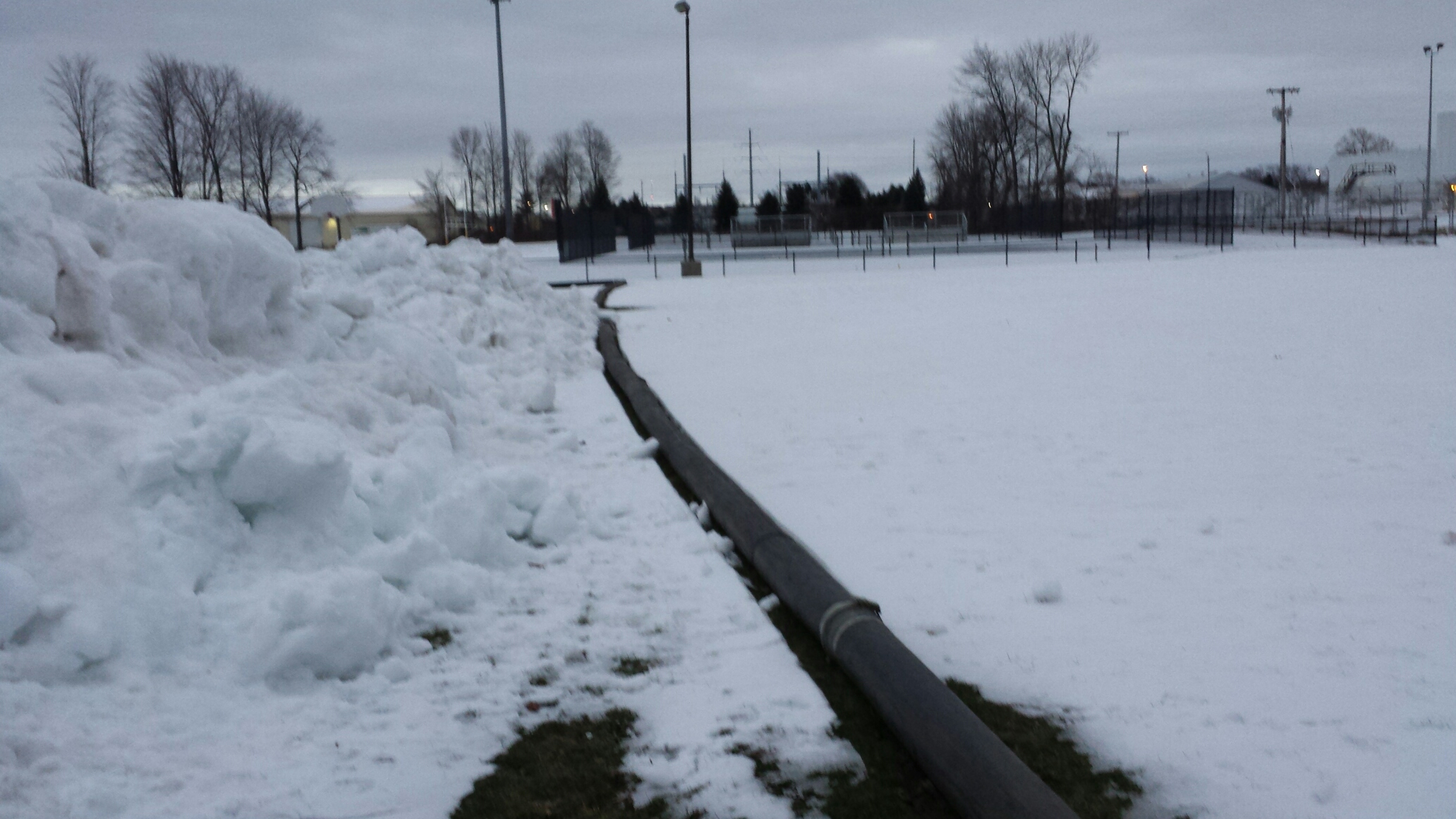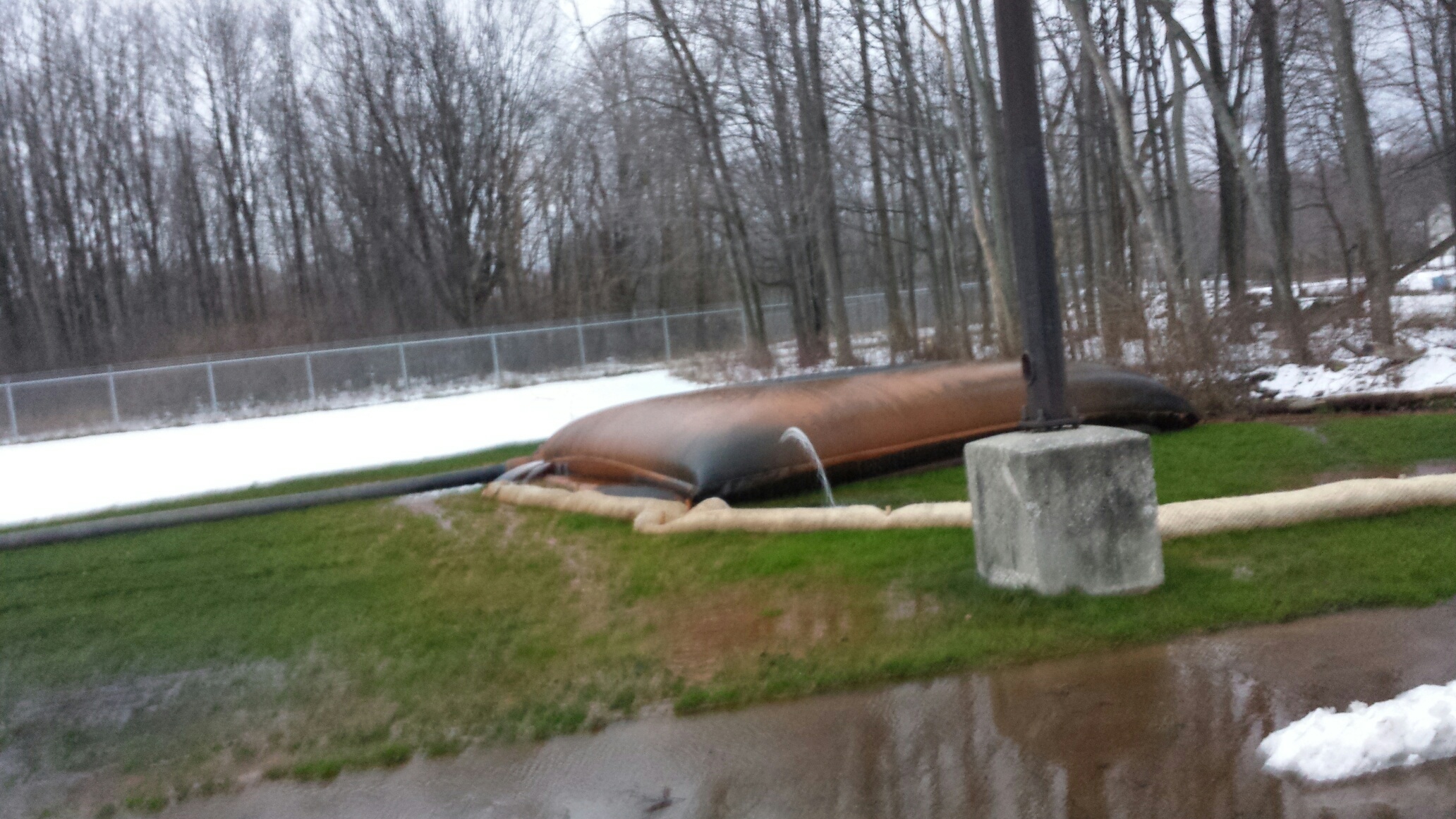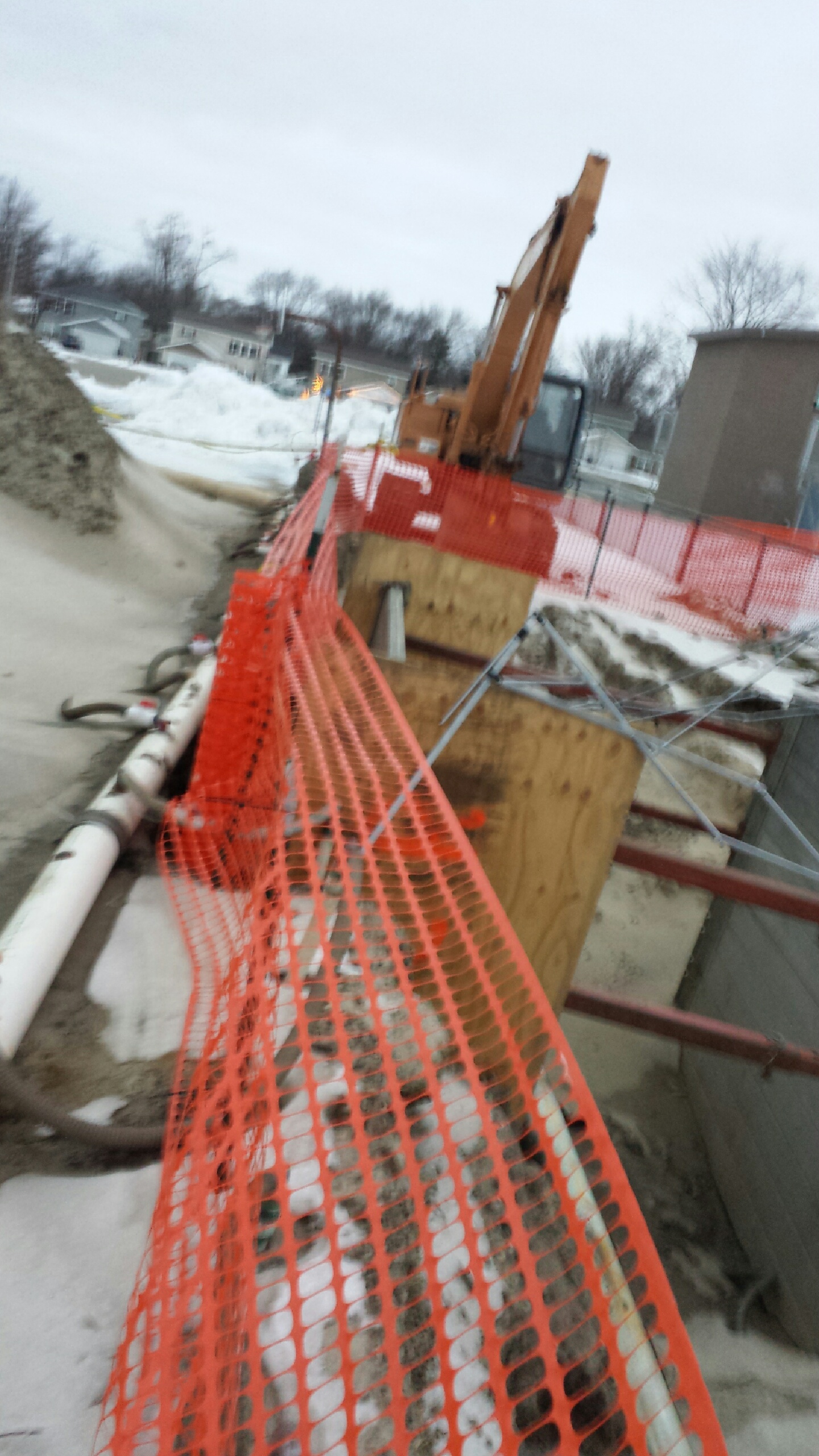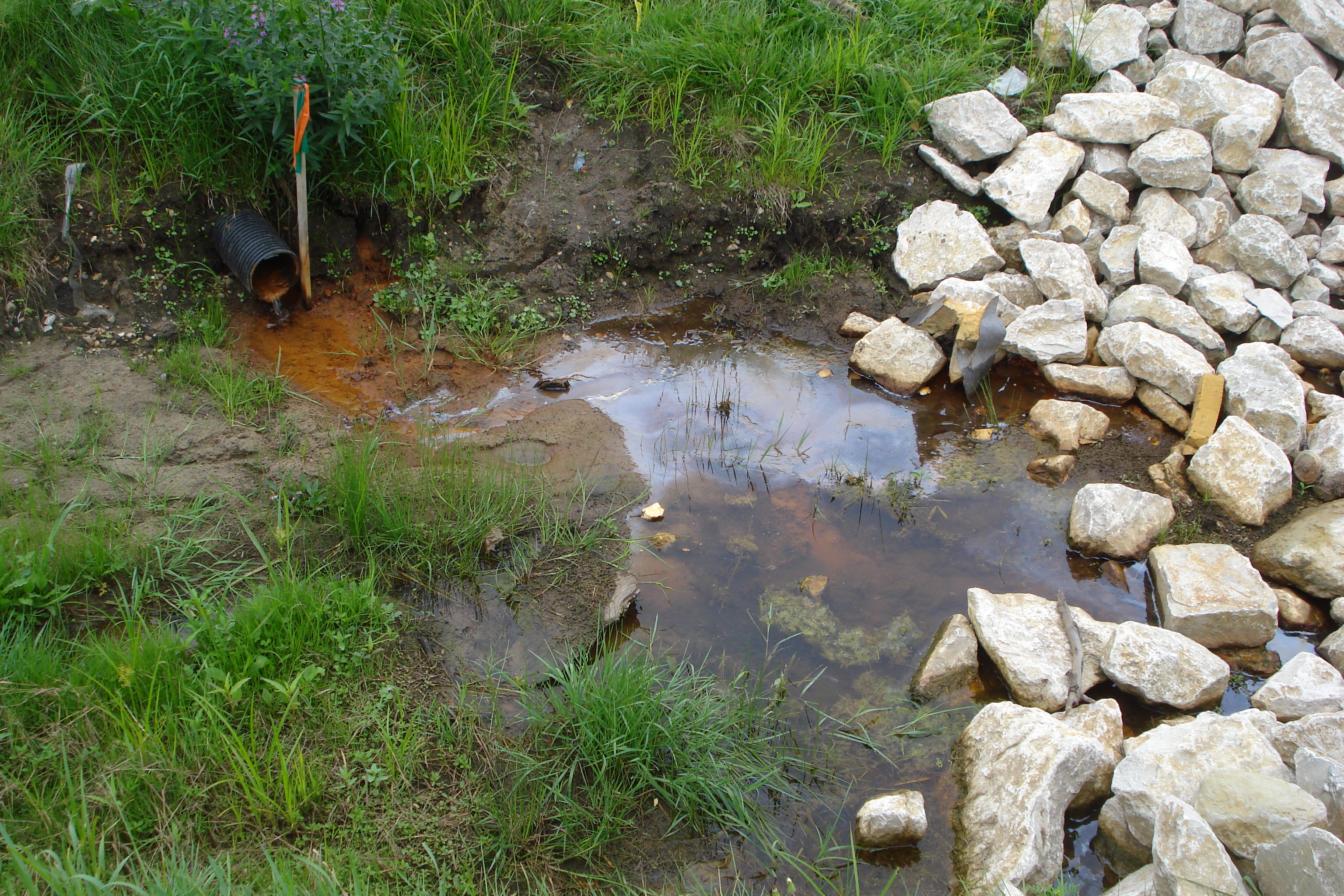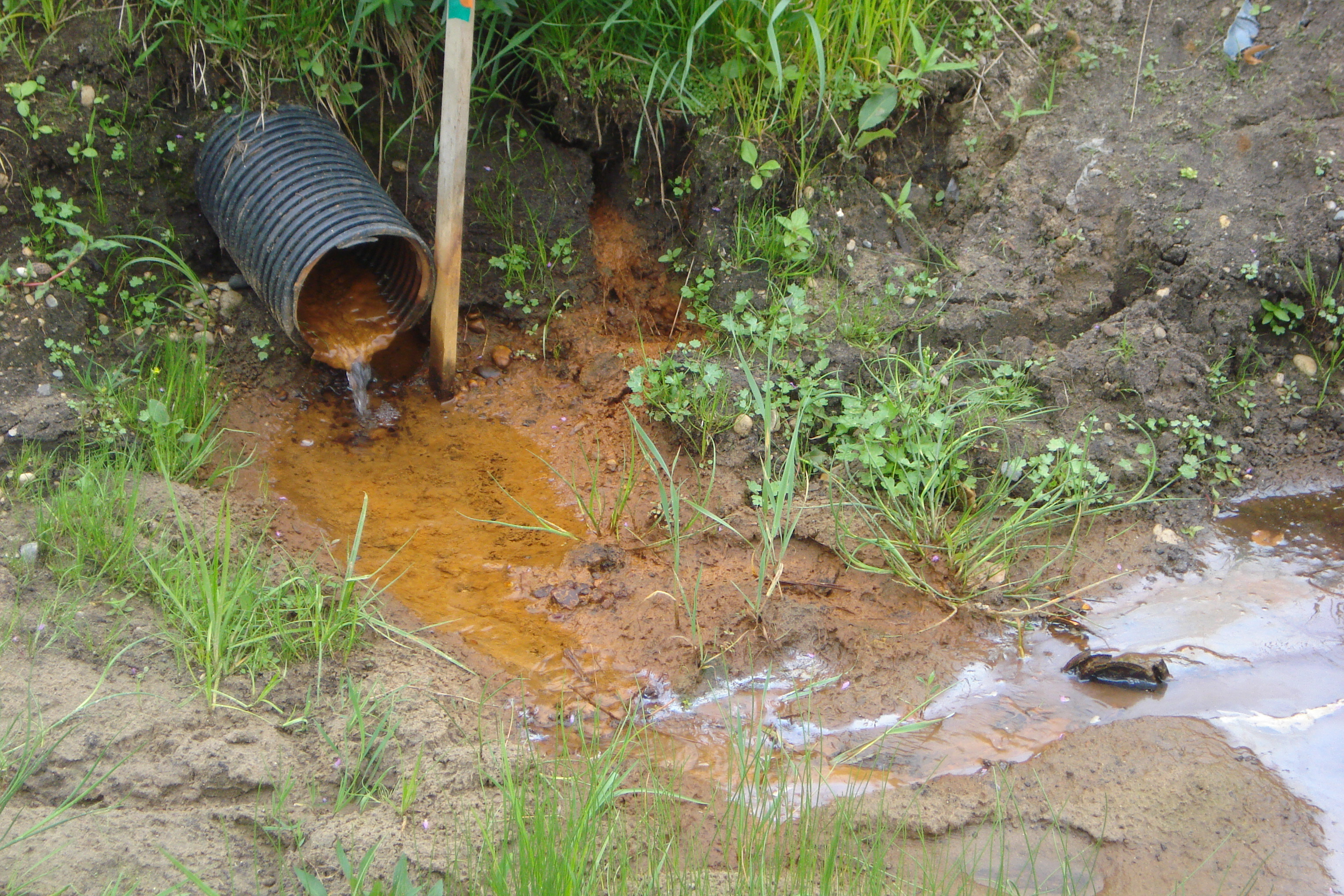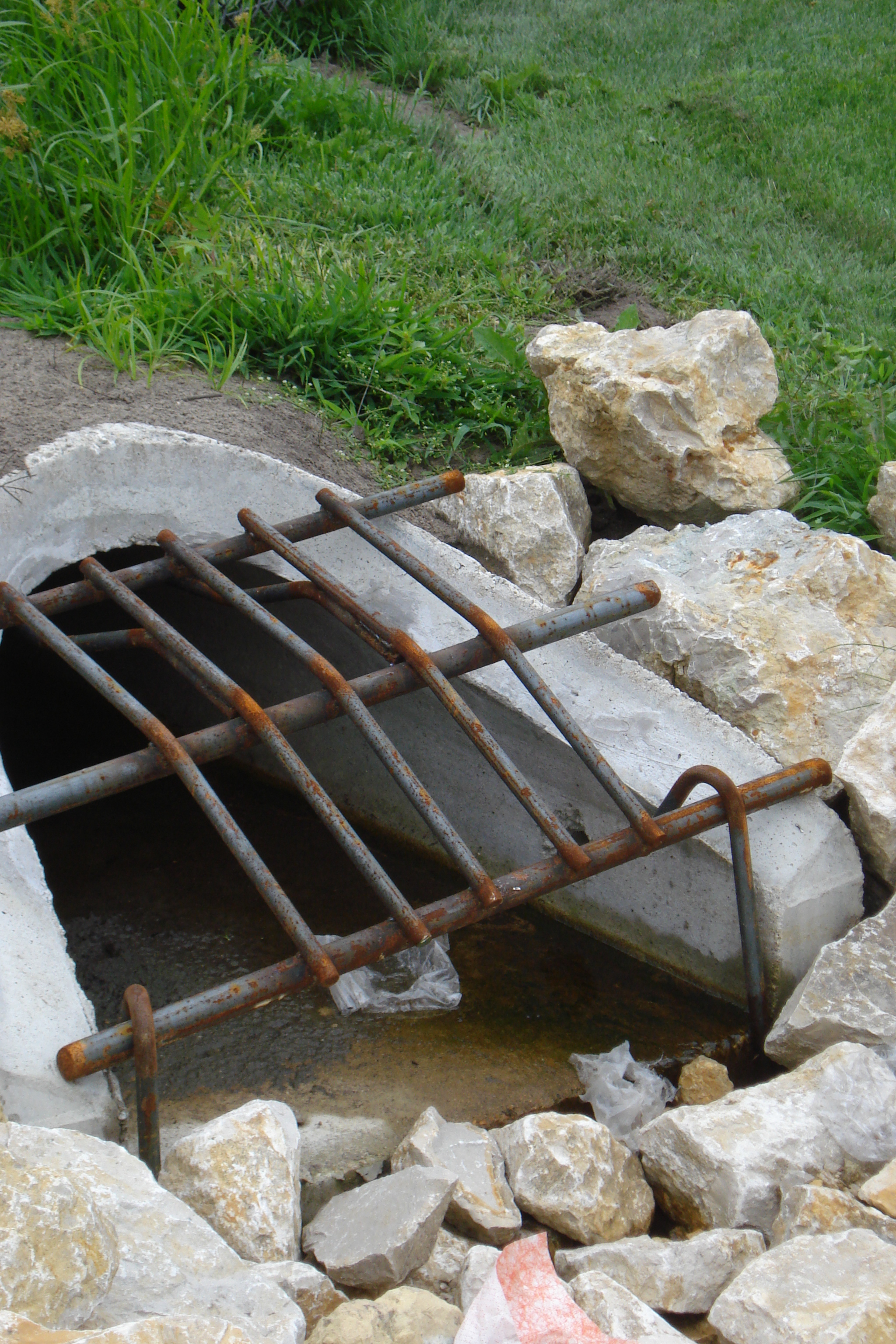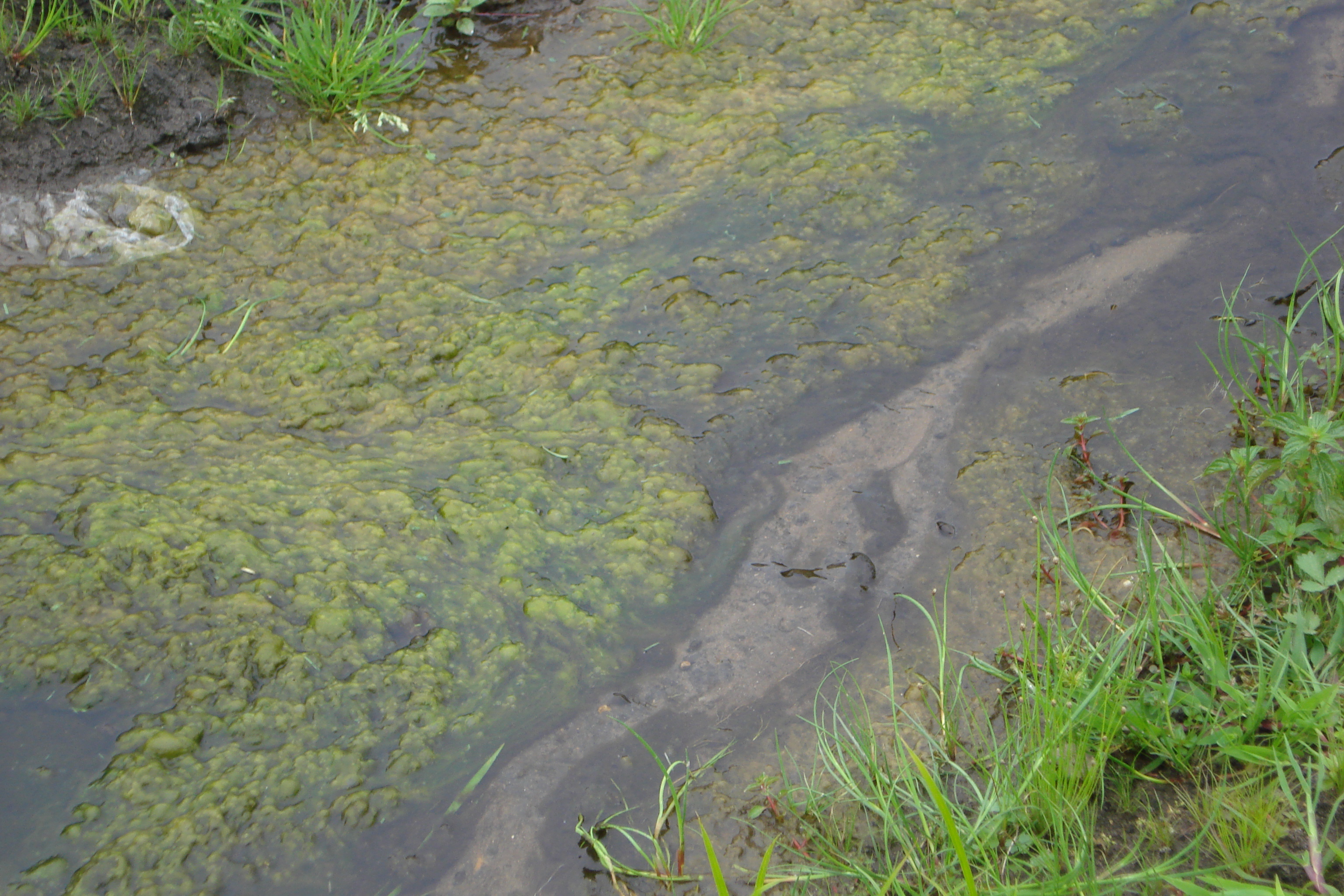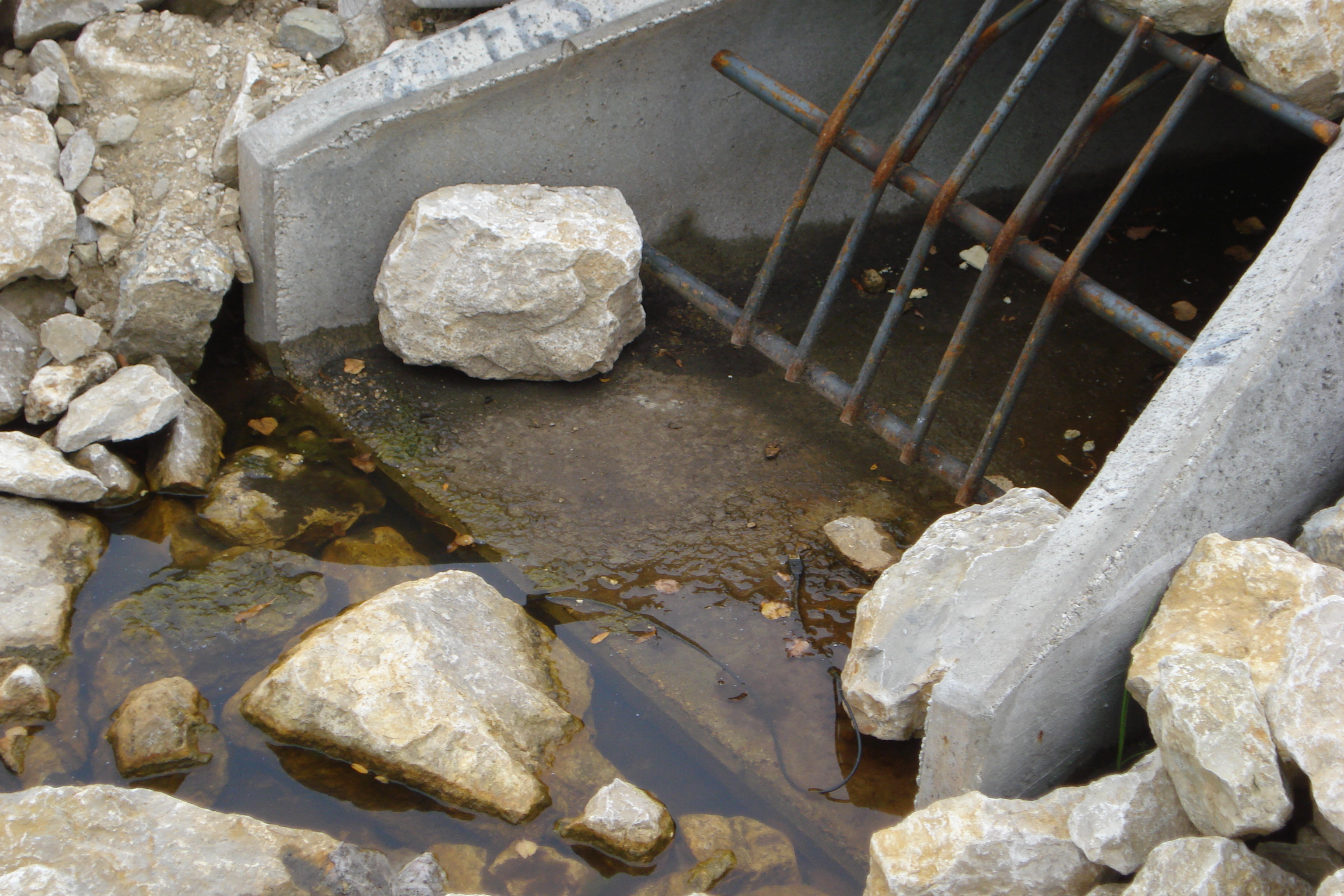This post is a retraction of a post published by RMP last Sunday January 17, 2016. RMP mistakenly posted a story about a gasoline spill at Holland West Middle School in Holland, Michigan. There was no gasoline spill by Wolverine Pipeline at West Middle School. The pictures RMP obtained of Terra Contracting Services remediating a petroleum sheen on surface waters on 12/31/2015 were not related to the excavation activity being performed by Wolverine Pipeline at West Middle School. Half of the photos RMP published were of West Middle School and half the pictures RMP posted were a different undetermined location. RMP mistakenly connected the two sets of photos as at the same location. Tom Shields from Wolverine Pipeline let RMP know the information that we published was erroneous and it was taken down immediately. RMP regrets any false sense of alarm caused by the publication and wanted to immediately issue this retraction.
Here is the story of what has happened and where we are today with regard to ground water contamination at Holland Terminal: On July 22, 1988, Quality Oil Company – Holland Terminal applied for an application to treat petroleum contaminated ground water and release the treated water to the Ottawa Avenue Drain to Outfall 001 to Lake Macatawa. Holland Terminal uses a Granulized Activated Carbon (GAC) filtration system to process contaminated water from Dewatering Wells 1, 2, & 3 on location. The GAC filtration system filters water up to a maximum BTEX concentration of 20 μg/L. The treated water is released to the Ottawa Avenue Drain which flows to Lake Macatawa through Outfall 001.
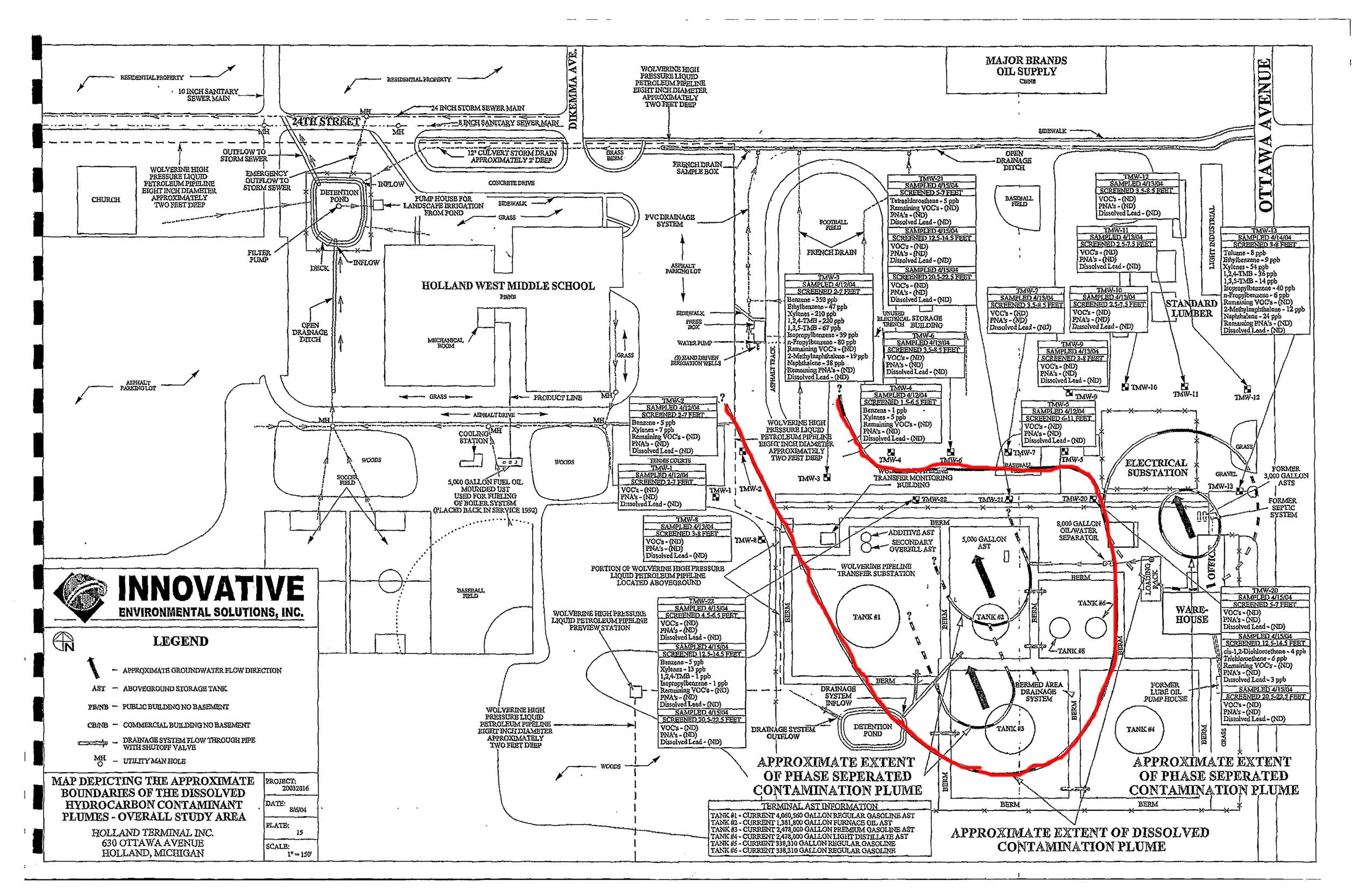
On December 15, 2015 Wolverine Pipeline began excavation to perform routine pipeline maintenance. Wolverine used a tool that found a pipeline anomaly where refined petroleum product flows through a section of pipeline near W. Middle School. The proactive solution by Wolverine was to install a sleeve on the pipeline to strengthen it. No gasoline was spilled.
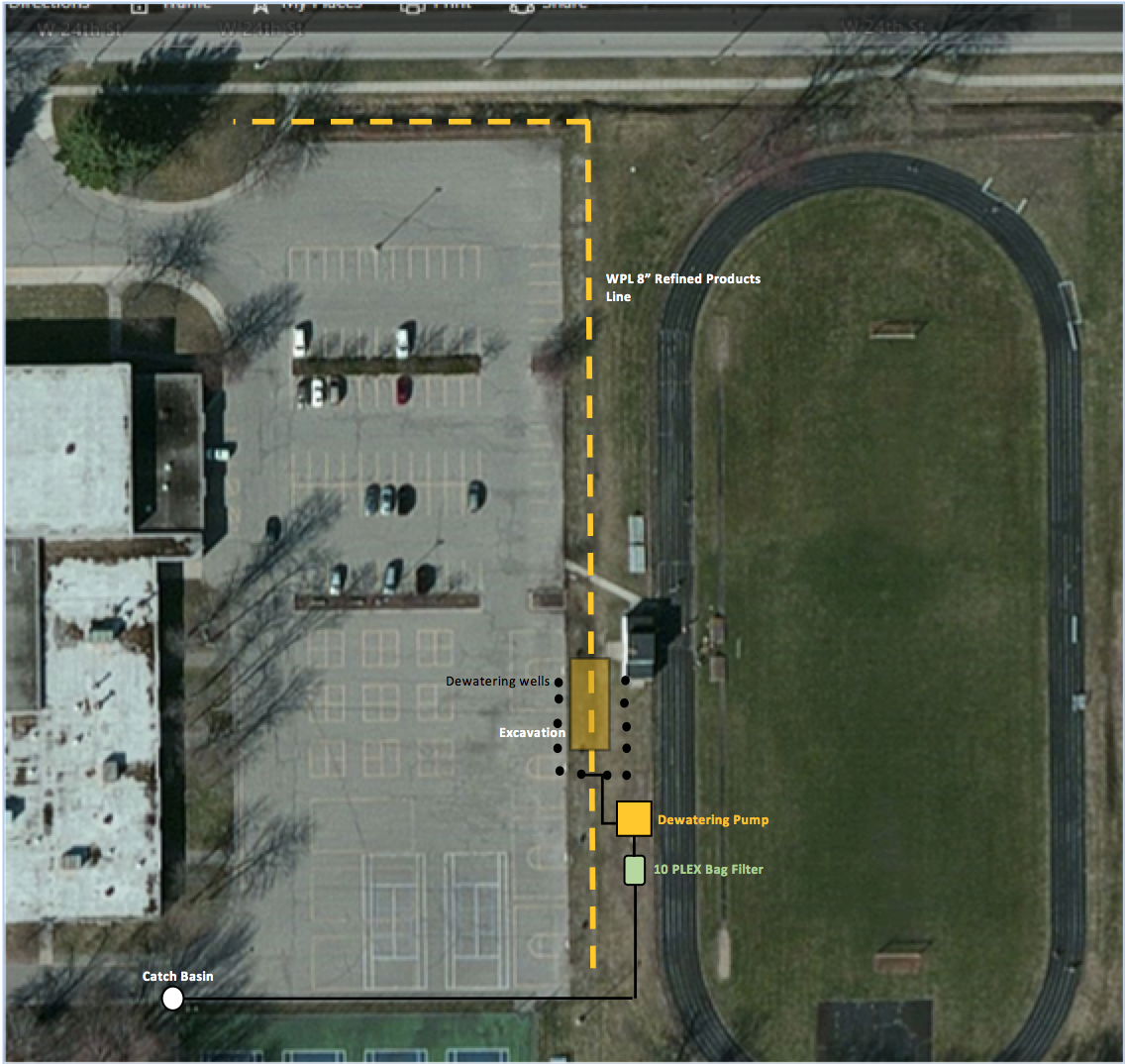
The excavation work is being performed by Future Environmental out of Mokena Illinois. The excavation area where maintenance is being performed happens to be in the contamination plume area migrating from Holland Terminal. De-watering of the excavated area was necessary after digging near a French drain when the excavated area filled with water. Wolverine is required to have a permit to discharge water and they began work without one.
There is dispute as to whether Holland Terminal issued a “notice of migration” for the contaminated ground water plume to Wolverine or the City of Holland. The contamination plume from Holland Terminal logically flows northwesterly toward Lake Macatawa which is in the direction of the adjacent middle school. When excavation work began, a concerned citizen notified the MDEQ. The person who notified the MDEQ on January 5, 2016 happened to be Mr. Mike Swan who works for the Holland Terminal Company. Mr. Swan asked Michigan’s RRD if Wolverine had a permit to discharge the water from the excavation location because he knew the water there was contaminated.
The MDEQ asked Wolverine to stop dewatering the excavation area immediately which they did. Wolverine even offered to collect water samples. Wolverine stated they never knew the area was contaminated as they never received a notice of migration from Holland Terminal.
The MDEQ had this to say about the current status of the situation according to an event summary made public earlier this week:
Wolverine asked if they can resume the discharge without a permit or if a permit will be required. WRD has evaluated this request with the following information in mind:
- No public health or environmental risk is expected as the result of a surface water discharge based on the concentrations of the known pollutants present in the discharge.
- This dewatering operation is expected to be short-term; lasting about one week.
- There were no detectible concentrations of volatile organic compounds present in the groundwater being discharged (from any sample collected).
- Iron and manganese concentrations were above the secondary maximum contaminant level (SMCL) at all locations sampled. The concentration of iron in the excavation hole exceeded drinking water criteria.
- There is no Rule 57 number to compare the known iron and manganese concentrations to (for a surface water discharge). WRD can develop their own number, but this is only needed when concentrations are well in excess what was observed at the School. Consequently, no discharge limits for iron and manganese would be included in a surface water discharge permit.
- The city of Holland has agreed to accept this water into their sanitary system, but to get the water into the sewer system, they would need to close one lane of traffic on 24th Avenue, near the School.
- A Part 22 groundwater discharge permit or a groundwater discharge permit waiver will be needed if the filter bag remains in contact with the ground. To avoid the need for a Part 22 permit or a waiver, the filter bag must be in containment so no water is discharge to the ground.
- Wolverine must complete this project (and a second one on the same property) as well as two other unrelated sites before February 1, 2016 or the pipeline will be de-rated.
- We have no general permit to use for this discharge/activity. An individual permit would be needed if one was to be required because no VOCs were present. The issuance of an individual permit would take months.
After careful evaluation of the analytical data and site conditions at this dewatering location; and in consultation with our Surface and Groundwater Permitting Units and the Remediation and Redevelopment Division, we believe it is acceptable to discharge the dewatering water from this specific site to surface waters of the state. The following conditions must be satisfied for Wolverine to proceed with the discharge:
- A structurally intact filter bag must be used prior to discharge into the storm sewer catch basin.
- The filter bag or dewatering water may not come into contact with the ground unless a groundwater permit or a groundwater permit waiver has been obtained first. This means that the bag may need to be relocated into secondary containment or moved to an impervious surface. No overland flow will be allowed, so the discharge rate may need to be adjusted to ensure the storm sewer and catch basins have adequate capacity to contain the discharge.
- Any residue remaining in the catch basin(s) as a result of this discharge must be removed at the end of the dewatering event. Notification to the Water Resources Division that this has been completed will be required. Visual evidence of iron residuals in the storm sewer pipe and catch basins were observed from the last discharge.
- This approval does not grant permission to discharge dewatering water from the second site on the school property. If dewatering is needed at that location, it must be sampled first and the results evaluated and approved by us prior to discharge to waters of the State. We would not expect the characteristics of the groundwater to be significantly different from the current location, but we want the opportunity and ability to protect the public trust.
- Please notify us when the current dewatering discharge resumes and when it is concluded. If Wolverine elects to divert this dewatering water to the Holland sanitary sewer, please let us know.
- The decision by WRD to allow a short-term discharge of this dewatering water to surface waters of the State without a NPDES permit does not protect Wolverine from a third party lawsuit for the discharge.
An email authorizing the discharge to surface waters with the above conditions was sent to [Steve] Iseminger on January 13, 2016.
RMP regrets publishing incorrect information of a gasoline spill last Sunday and any distress caused by that mistake to any of our readers. Our goal is to understand the economics of water conservation. Our goal is also to always provide accurate and reliable information. One of the research areas RMP is starting to focus on in 2016 is petroleum storage tanks. Our research and data analysis indicates that the highest frequency of petroleum contaminated ground water occurs near petroleum storage tanks.
Even in this case, where we incorrectly reported a recent spill, it is evident that petroleum has been spilled at this location previously. Petroleum contaminated ground water has existed at Holland Terminal since 1988 and is still being treated with a GAC filtration system. That means for 28 years, since 1988, petroleum contaminated ground water has been treated at this location. That is why RMP follows events like this that can have an impact on ground water. The contaminated ground water at this location is something very important for us to pay attention to and understand. Benjamin Franklin once famously said “small leaks sink great ships”. RMP is working to understand the societal costs of petroleum leaks and other things toxic to fresh water and measure them in real dollars.
RMP is working to understand the impacts of crude oil based fuels on our environment as we advocate for manufacturing energy from garbage, bio-waste, and municipal wastes. We now have the technology to turn our regular waste products into synthetic natural gas and other fuels to wean ourselves off of fossil fuel products. Not only can new energy technologies make us energy independent, we can significantly reduce wastes headed to landfill, groundwater threats, and atmospheric emissions. RMP believes that making our own domestic energy that does not threaten our water or our air will save us money and also create jobs in the long term and we have gathered much data that continues to support that hypothesis.
We all currently use gasoline and diesel to move ourselves and the products we demand from location to location. RMP does not look to demonize the oil industry or its workers for something we all depend on for the high standard of living we are accustomed to. We depend on oil just the same as everyone else in America. RMP advocates for the responsible migration away from crude oil as an energy source. We can retire the use of crude oil responsibly while creating jobs and sustainable energy for future generations. We regret any alarm that may have been caused by last Sunday’s post stating that a gasoline spill had recently occurred. But, bear in mind, thousands of petroleum spills have happened throughout the past decades. As long as we depend on gasoline powered vehicles, that trend will continue with statistical reliability.
Below are some of the pictures related to Wolverine’s excavation and maintenance project that began on December 15, 2015.
Below are photos of the drains near Holland West Middle School. The photos below were taken August 27, 2013. The photos show rust colored soil staining indicating iron concentrations are high in the ground water near this area. A slight oil sheen can be seen on the water in a couple of the photos as well.
Below is a statement regarding the routine inspection and maintenance activities at Holland West Middle School received by RMP from Tom Shields from Wolverine Pipeline:
Since mid December, Wolverine Pipe Line Company has been conducting routine inspection and maintenance activities on our pipeline located at Holland West Elementary School. As part of these activities, ground water is being pumped away from the area to create a safe excavation for workers. MDEQ contacted Wolverine after a citizen raised concerns about the quality of the water being pumped. Wolverine in cooperation with MDEQ confirmed the water being pumped meets acceptable water quality standards. Because high concentration of iron is typical in this area, Wolverine has taken steps to filter iron from the water that is being removed from the excavation.
Wolverine wants to assure the community that public safety and protections of the environment is our utmost priority and our goal is to meet or exceed all environmental rules and regulations. Wolverine did not have a gasoline release from our pipeline and there was no water contamination. We will continue to work with Holland Public Schools, City of Holland and MDEQ to ensure the inspection and maintenance activities are done safely.
Wolverine is a Michigan-based pipeline transportation service company incorporated in 1952, and is headquartered in Portage. Wolverine has 67 employees in three states where it operates — Michigan, Indiana and Illinois. Wolverine operates more than 630 miles of active pipelines connecting refineries in Joliet and Lemont, Illinois and Hammond, Indiana to terminals in Illinois, Indiana and Michigan, including the proposed reconnection to Woodhaven in Southwestern Metropolitan Detroit.
For additional information on Wolverine Pipe Line Company, please visit: http://www.wolverinepipeline.com


